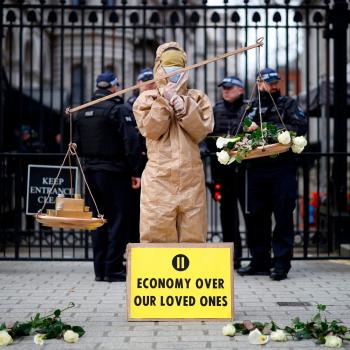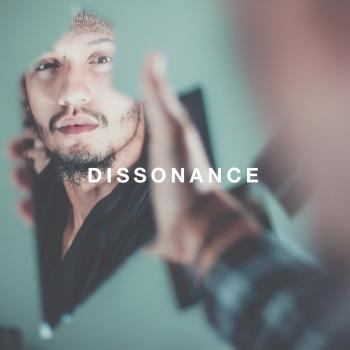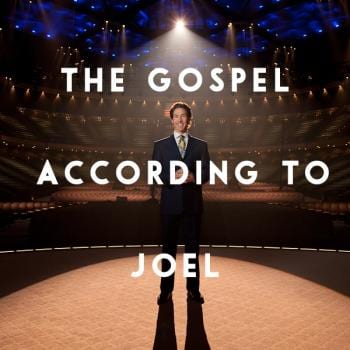Single and happy are two words we don’t often hear used in the same sentence, on the rare occasion they are they’re usually used in an attempt to convince someone their “fine” post-breakup.
The single happy person is like big foot, we’ve heard of him, few claim to have spotted him, but most are pretty sure he doesn’t exist.
I know the obsession of finding the one is not purely a Christian thing though I do think that because of Christianity’s sexual ethic placed on us by “God” this has changed the game for those of us who have experienced and/or are currently within this so-called “Christian bubble.”
Within Christian culture it at times feels as if the twenty somethings life verse was, “Do not conform to the patterns of this world but transform into being “content” so you can get married ASAP [not actually in the bible].” Also when I say “finding the one,” what I’m actually saying is that all of this was just an acceptable means of expressing our impatient obsession with someday being allowed to have “guilt-free” sexual interaction, why?
Because “True Love Waits…” #duh
Whether we like it or not Christianity for many of us millennials has been a substantially formative factor in our developmental years. This resulted in manifesting our definition of success and what our human experience “should” be defined by. In this particular instance, I’m referring to marriage.
Every other sermon, small group material, or late night conversation was about sex, marriage, relationships, and finding this “one.” We obsessed, both guys and girls, over the unrealistic dream of one day having a marriage just like a Nicholas Sparks novel or a Disney movie. For too many millennials their first two years are more comparable to a made for TV movie on the Lifetime network; it started pretty but it didn’t end well.
Church culture inadvertently ingrained in me that being married was the equivalent to that of being successful. If you were not married by a certain age you’ve not only failed but some how taken on an identity as a failure.
It was and still is a toxic part of evangelical culture. It was communicating that singleness, past a certain age, was failure. This causes mass panic on Christian campus’ when spring of a 22 year-old’s senior year hits and they still have not found “the one,” so they pick whoever is left or stay with the person who it’s clearly not working with.
This could be why half of their marriages didn’t work out. Considering all of this I no longer believe that being married is the equivalent to that of being successful.

SOURCE: DATA FROM 1980, 1997, AND 2013 ARE FROM THE MARCH CURRENT POPULATION SURVEY; 1960 DATA ARE FROM THE 1960 CENSUS. [via PEW RESEARCH CENTER]
I mean with over 50% of Christian America now divorced something had to be going really wrong at home and in these relationships. This false guise of “everything is okay” has terrified a generation of us as Millennials considering the statistics. In a recent article on RELEVANT Magazine, Emily Mcfarlan Miller writes:
“Only about one in four, or 26 percent, of millennials are married, according to Pew. That’s compared to 36 percent of Generation X at the same age (between 18 and 32 years old), 48 percent of baby boomers and 65 percent of the silent generation.”
Nobody spoke up and admitted to us in church that they were miserable, that their marriage was a train wreck, and that they felt utterly trapped. Nobody admitted their infidelities, spoke about the horror of walking in on their partner masturbating to pornography, or that they felt more emotionally connected to their secretary than they did their wife.
It feels like we were lied to or at the very least we were deceived into believing getting a “super hot wife” marriage was the answer because our youth pastors were constantly telling us how awesome waiting had made their sex life. In which now thanks to super honest evangelical bloggers we know that this is far from the truth.
Sadly many of us believed that the cure to our loneliness, depression, and lack of success was marriage. So to cure our loneliness or sexual appetite, a ring by spring became the norm at every. other. Christian. college…
If there is one thing I’ve learned from watching friends who are married its that the reward of sex is not worth the cost of marriage.
I know this because I’ve sat on the phone with 27 year old men and women, who married at 22, consoling them as they’re hyperventilating and wanting out but find themselves stuck in active pastoral ministry (the average age for couples going through their first divorce happens around the age 30, go figure).
I’m become confident in my theory that marriage does not cure loneliness.
I’m not saying, “Don’t get married,” neither do I want to imply that you cannot be happy if you’re married. I’m only communicating that marriage is not a magical anecdote that will make all of your problems disappear, or that will bring you success, or even fulfill your sexual desires. Furthermore, I’m suggesting that regardless of your marital status you can be happy, successful, and sexually healthy.
Of course there are lonely people who are single, but their loneliness is not because of their singleness. Depression, a fear of vulnerability, addiction to media #netflix, toxic ideologies you received from an evangelical upbringing… I’m not 100% sure what our root causes are but I’m lead to assume that when you do get married, these problems will still exist.
So then in light of marriage not being the answer what exactly do we do?
Simple, begin to think for yourself.
Reject this idea that your worth and value are tied up in your marital status, or lack there of. This applies to those who are in broken marriages, hopeless marriages, separated marriages, or no longer have a marriage because of divorce. Our worth and our value is not determined by our relationship status.
There came a point in my life where I chose to reject these black and white morals that supposedly made me a “good” person.
I let go of who I was told to be, and decided to take hold of who I actually am, and I understood the overused cliché that says “My value does not decrease based on someone’s inability to see my worth.”
In other words, my obedience, or lack thereof, to these culturalized rules, laws, and morals taught to me and made by men do not determine my worth or value. Not doing everything they ask does not mean you’re not doing exactly what God wants.
Trust me, it’s better to be single and unhappy than it is being married and miserable.











